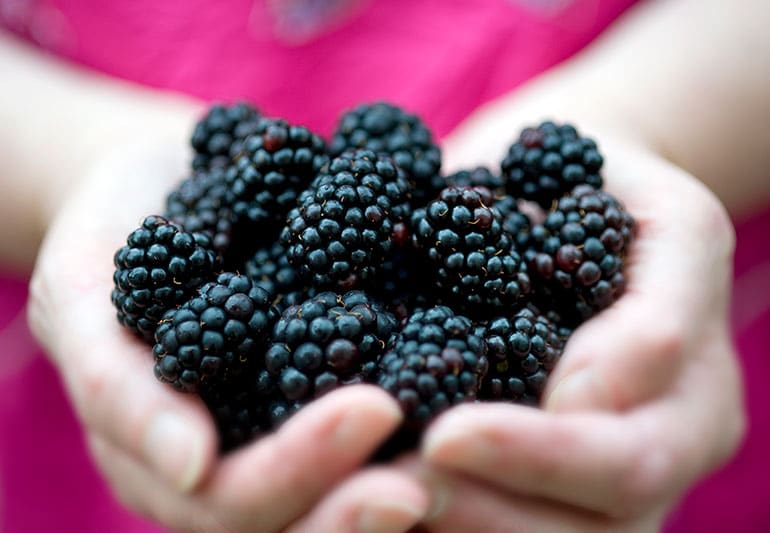Can people with diabetes eat blackberries?
Sometimes, adding fruits to your diet is one of the best options for keeping blood sugar levels normal and making diabetes management easier. One of the fruits that are deemed worthy to help control varying blood sugar levels is blackberries.
Are blackberries safe for diabetics? Yes, definitely. Famous for their black color and delicious taste, blackberries add great value to diabetes management. They contain a rich amount of vitamins that help reduce the likelihood of diabetes complications. They are also a rich source of antioxidants that eliminates the body’s susceptibility to chronic diseases like type 2 diabetes.
What is the glycemic index of blackberries?
A glycemic index is a form of scale that measures the effectiveness of a specific food and how it affects blood sugar. Each food is ranked from 1 to 100 on this index. Foods with high scores can quickly cause a spike in blood glucose. On the other hand, foods with low scores are safe for people with diabetes and will not necessarily affect their blood sugar.
In the case of blackberries, they have a GI score of 25. Like other types of berries, blackberries are categorized under low-GI foods, which indicates their safety.
What are the benefits of consuming blackberries?
Blackberries are filled with antioxidants.
Like strawberries and blueberries, blackberries are also rich in antioxidants. These are natural substances that help fight against free radicals. One of the antioxidants present in blackberries is anthocyanins.
Anthocyanins give blackberries their color. But besides that, anthocyanins work particularly in reducing inflammation and protecting the body from conditions like Alzheimer’s disease, heart problems, cancer, and, most importantly, type 2 diabetes.
In addition, several studies suggest that the presence of anthocyanins in the body can improve insulin sensitivity. Note that one of the significant causes of diabetes is insulin resistance. It means that anthocyanins can help resolve this medical issue and assist the body in using and producing more insulin.
Blackberries are good sources of fiber.
Fiber plays a vital role in diabetes management. It helps lower blood sugar levels by slowing down the digestion process. When someone eats food that is rich in fiber, it delays the absorption of glucose into the bloodstream. This process prevents a spike in blood sugar.
A half-cup serving of blackberries contains 3.7 grams of fiber. Since people need at least 20 grams of fiber every day, it is safe to say that blackberries can improve and control diabetes properly. This will also prevent the development of diabetes.
Other benefits of eating blackberries:
- A whole serving of blackberries can give you a feeling of saturation. What does that mean? It means that you feel full quickly. It is one way to prevent weight gain, as obesity is a contributing factor to the development of type 2 diabetes.
- Blackberries do not reduce the concentration of sugar in the blood. Instead, they assist in the removal of harmful substances from the body. Such a process increases the functionality of the digestive system, boosts the cardiovascular system, and strengthens the body’s immunity.
The nutritional profile of blackberries
One cup of blackberries contains the following:
- Calories – 62
- Fat – 0.7 grams
- Sodium – 1mg
- Carbohydrates – 13.8 Grams
- Fiber – 7.6 grams
- Sugars – 7 grams
- Protein – 2 grams
Vitamins and minerals present in blackberries:
- Vitamin C
- Vitamin K
- Potassium
- Magnesium
- Calcium
- Iron
Takeaway
Blackberries are indeed safe for people with diabetes to eat. They are one of the safest to eat and enjoy if you are addressing your varying blood sugar levels. Their abundant reservoir of vitamins and minerals makes them extra safe in managing different health conditions.


